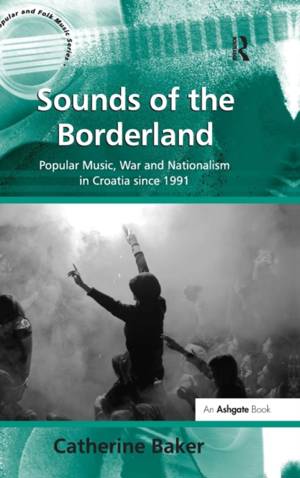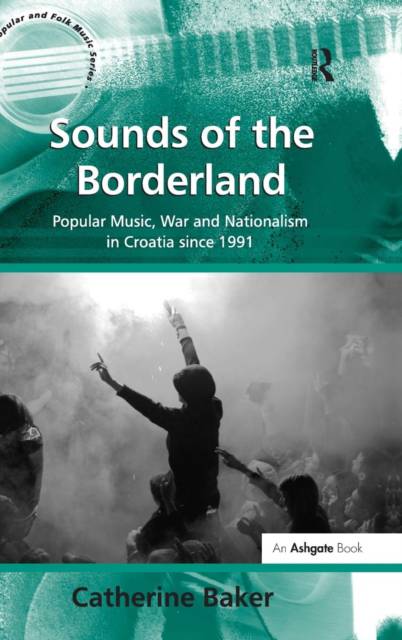
- Afhalen na 1 uur in een winkel met voorraad
- Gratis thuislevering in België vanaf € 30
- Ruim aanbod met 7 miljoen producten
- Afhalen na 1 uur in een winkel met voorraad
- Gratis thuislevering in België vanaf € 30
- Ruim aanbod met 7 miljoen producten
Zoeken
Sounds of the Borderland
Popular Music, War and Nationalism in Croatia since 1991
Catherine Baker
Hardcover | Engels
€ 320,95
+ 641 punten
Uitvoering
Omschrijving
Sounds of the Borderland is the first book-length study of how popular music became a medium for political communication and contested identification during and after Croatia's war of independence from Yugoslavia. It extends existing cultural studies literature on music, politics, and the state, which has largely been grounded in Western European and North American political systems. The outbreak of war in 1991 saw almost every professional musician in Croatia take part in a wave of patriotic music-making and the powerful state television system strive to bring popular music under its control. As the political imperative shifted from securing national survival to consolidating a homogenous nation-state, the music industry responded with several strategies for creating a national popular music, producing messages about the nation and, in the ongoing debates over the origins of the folk music that inspired many songs, a way to define the nation by expressing what Croatia was not. The war on ethnic ambiguity which cut through individuals' social and creative lives played out across the airwaves, sales racks and gossip columns of a small country that imagined itself a historical and cultural borderland. Baker's book provides valuable insight into the role of music in a wartime and post-conflict society.
Specificaties
Betrokkenen
- Auteur(s):
- Uitgeverij:
Inhoud
- Aantal bladzijden:
- 278
- Taal:
- Engels
Eigenschappen
- Productcode (EAN):
- 9781409403371
- Verschijningsdatum:
- 28/07/2010
- Uitvoering:
- Hardcover
- Formaat:
- Genaaid
- Afmetingen:
- 156 mm x 234 mm
- Gewicht:
- 566 g

Alleen bij Standaard Boekhandel
+ 641 punten op je klantenkaart van Standaard Boekhandel
Beoordelingen
We publiceren alleen reviews die voldoen aan de voorwaarden voor reviews. Bekijk onze voorwaarden voor reviews.











